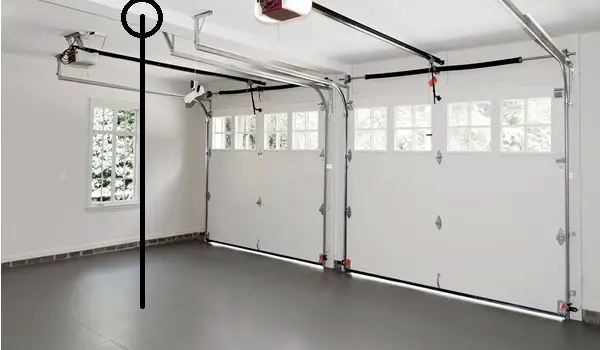How Tall Are Garage Ceilings
Garage ceilings are more than just overhead spaces; they are integral to the functionality and practicality of the entire structure. Whether you’re a homeowner or a business owner, delving into the world of garage heights becomes imperative to make informed decisions about your space. Let’s embark on to understand the dimensions that make garage ceiling heights unique.
Importance of Garage Ceiling Height

The height of your garage ceiling might not be a daily consideration, but its significance cannot be overstated. It serves as a pivotal factor in determining the efficiency and adaptability of your garage space. Understanding this dimension is crucial for both homeowners and business owners alike.
Variation in Ceiling Heights
Garage ceiling heights are not uniform; they vary across residential and commercial spaces. Recognizing this range is essential for effective planning, whether it’s for storage, parking, or engaging in specialized activities within the garage.
Residential Garages
Standard Ceiling Height (8 to 9 Feet)
In the realm of residential garages, a standard ceiling height falls within the range of 8 to 9 feet. This provides ample clearance for typical vehicles and accommodates basic storage needs. The standard height strikes a balance between functionality and construction feasibility.
Taller Options for Specific Needs (10-12 Feet)
Yet, some homeowners opt for taller ceilings, ranging from 10 to 12 feet. This additional space caters to various needs, such as accommodating lifting equipment, creating storage platforms, or providing clearance for taller vehicles like RVs. It’s a choice that reflects the diverse uses individuals have for their garage spaces.
Commercial Garages
Higher Ceilings for Larger Vehicles and Activities (12 to 18 Feet)
The landscape of commercial garages is different, driven by the necessity for accommodating larger vehicles and specific activities like truck maintenance or equipment storage. Consequently, commercial garage ceiling heights can range from 12 feet to 18 feet or even higher, depending on the intended purpose.
Additional Factors
Influence of Local Building Codes
Beyond personal preferences, local building codes exert a significant influence on garage ceiling heights. Before initiating any plans or construction, it’s crucial to delve into the specific regulations in your area to ensure compliance and safety.
Impact of Garage Door Height on Ceiling Requirements
The garage door itself plays a pivotal role in determining ceiling requirements. Larger doors, especially those designed for bigger vehicles, necessitate a higher ceiling to provide the required space for seamless functionality.
Conclusion
In conclusion, the answer to the question, “How tall are garage ceilings?” is nuanced and depends on a myriad of factors. From the type of garage to its intended use, understanding these considerations enables a more precise estimate of the required ceiling height based on your unique needs.
FAQs
Are there standard garage ceiling heights for all residential properties?
Standard heights range from 8 to 9 feet in most residential garages.
Why do some homeowners opt for taller garage ceilings?
Taller ceilings (10-12 feet) offer additional clearance for lifting equipment, storage platforms, or taller vehicles like RVs.
What factors influence commercial garage ceiling heights?
Commercial garages may have higher ceilings (12 to 18 feet) to accommodate larger vehicles and specific activities like truck maintenance.
How do local building codes impact garage construction?
Local building codes dictate minimum ceiling heights, ensuring compliance and safety.
Why does garage door height matter in determining ceiling height?
Taller doors for larger vehicles require a higher ceiling to provide the necessary space.


